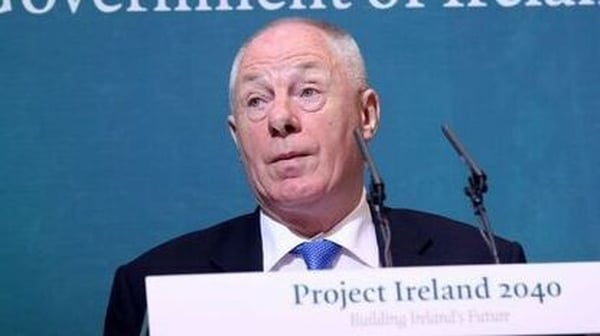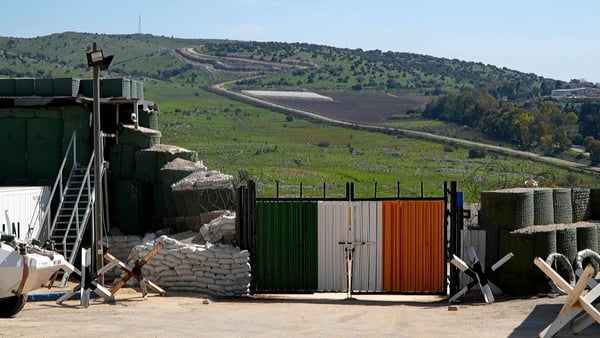Vaccines are on the way, lots of them. By the end of June, the Government says 82% of adults will have had their first dose.
Last week, as he served up more harsh medicine in the form of an extended lockdown, Taoiseach Micheál Martin tried to sweeten the pill by promising that "the end is truly in sight" - but is he right?
How soon after we get vaccines will things return to normal?
Will we be able to see family, go to the pub, attend a concert, or watch a match in a stadium? Will we still have to wear a mask? Will there still be lockdowns?
RTÉ's This Week programme asked a number of vaccine and public health experts to try to answer some of these questions.
"It's unclear to me what an end to this pandemic will look like," said Dr Kim Roberts, a virologist at Trinity College in Dublin.
"It would take a huge global effort to eliminate SARS Covid 2.
"Whether it's even possible to eliminate this virus is hotly debated because of how it is mutating… and also because of evidence that this virus can infect some types of animals, so there may be animal reservoirs for this virus too."
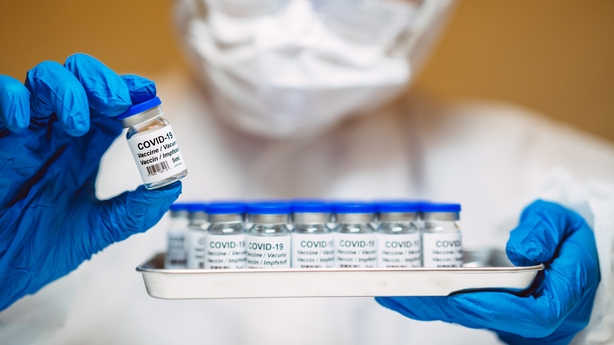
Dr Roberts added: "Vaccines are a powerful tool, but to maximise their effectiveness they need to be used alongside all of the other interventions to drive down transmission as much as possible."
When asked if that means we are going to have to continue to do things like social distancing, mask wearing, staying away from people, even after we get a vaccine, she replies: "I think in the short to medium term, all of these transmission interventions are likely to still be with us."
The reason control measures will remain in place beyond vaccines is because Covid-19 jabs alone are unlikely to be sufficient to achieve herd immunity.
Herd immunity is when enough of the population is immune, leaving the virus with nowhere to go.
But vaccines are currently not being given to young children, so transmission may still occur among that cohort.
There are also some adults who will not be vaccinated for various reasons, and it is likely that the vaccine will not work effectively for everybody.
All of this means that even after the vaccine programme has been completed, a sizeable portion of the population will still not be immune.
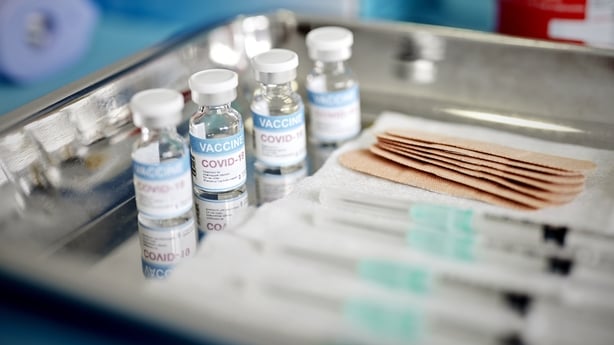
Dr Sarah Pitt, a microbiologist and vaccine expert from the University of Brighton, said vaccines are "one of the tools in the toolbox, but we will still need to keep doing the other public health measures, such as social distancing and wearing masks, for some time to come.
"That is because this is a global pandemic, and everybody in the world is likely to need at least one dose of the vaccine before it will really have its proper effect."
Dr Pitt also warned that we may not have seen the end of lockdowns. Local lockdowns, she says, are still going to be a feature of our lives for some time to come.
"I know it sounds bad, but having a really strict lockdown for two or three days is actually a good way to stop the virus spreading because it is so infectious."
Cases remain high in Israel despite vaccine success
In Israel, the country with the fastest vaccination programme in the world, there are plans to reopen society soon.
Dubliner Paul Kearns, who lives in Tel Aviv with his husband and family, experienced a very strict lockdown early on in the pandemic, where he was not allowed to travel further than 100 metres from his home, except for food and medicine.
Asked whether there is now more hope in the country because of the rapid roll-out of vaccines he replied: "It's an interesting question… to be honest it's a bit mixed.
"There's huge relief, and a sense of pride that the vaccine has been rolled out so quickly - about half the population has had its first dose and about a third has had its second.
"But it is tinged with concern because the cases remain quite high."
Mr Kearns added: "The rolling average for the past few days is working out at around 4,500 cases per day. The population here is double what it is in Ireland, so this equates to around 2,250 cases in Ireland.
"So that causes people to have a little bit of concern, and it means the government has become a bit more hesitant about opening things up as fast as they had hoped."
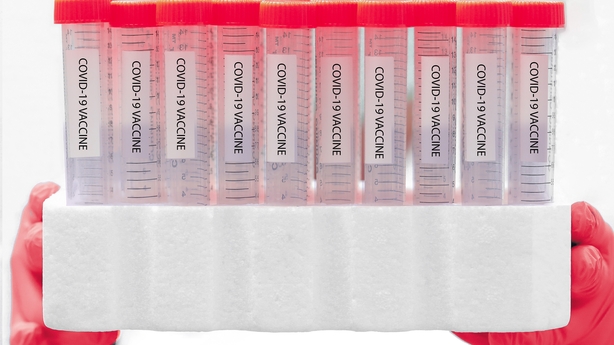
Vaccines have allowed for a more relaxed regime than before.
"The restriction of movement has been removed, so you can go anywhere you want in the country, but international travel will be highly restricted," said Mr Kearns.
"Currently, Israelis are forbidden to leave, and they have not allowed non Israelis into the country since last March, and that is expected to continue for the next year.
"Restaurants are due to open soon, and in most cities shopping malls are open. Some schools are open, others are not, and there are plans to allow some classroom teaching at universities, but that is uncertain."
Mr Kearns continued: "But by and large, Tel Aviv feels pretty ordinary at the moment."
In the very near future Israelis will be allowed to attend cultural events, cinemas and concerts.
But, said Paul Kearns, all of these events have the caveat that "you must have been vaccinated, and if you are not vaccinated, then you are not allowed to attend many things".
The Israeli government has put in place a system which allows people to download an app on their phone to show that they have been vaccinated.
"I think there is a recognition that things are not going to return to normal, even if the cases get lower. There will be restrictions of some sort in place for a while yet," he said.
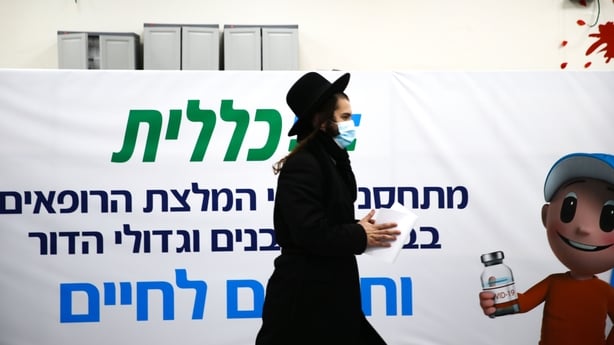
The scientists and public health officials we spoke to broadly agree that restrictions on international travel are necessary for at least the next year.
"One of the problems is that unless we have effective quarantine, just vaccinating people in this country isn't enough to generate herd immunity to protect everybody," said Dr Roberts.
"Because if they've been exposed outside the country to different variants of the virus, then they can bring that virus back into Ireland."
Professor of Public Health at the University of Edinburgh, Linda Bauld, agrees that international travel will remain out of reach for the foreseeable future.
But she said making this sacrifice will allow people to lead more normal lives back home.
"We might not ever return entirely to the normal that we had before, because there might be some things that we want to keep," she said.
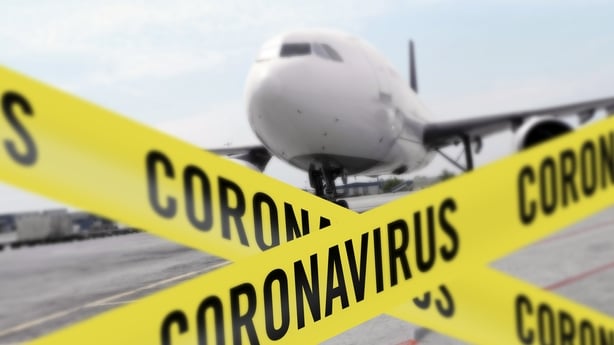
"For example, less non essential travel, more use of technology for communication and even in the winter months we might want to use face coverings to protect us against other respiratory viruses.
"But in general, our social contacts, which we miss so much, I'm really hopeful that we will have much more normality, we will be able to go back into restaurants and pubs, the cinema, the gym and travel within our own countries."
Prof Bauld added: "But I don't expect international travel to return to normal for much of this year, and I think there will be restrictions on mass gatherings through 2021.
"We might see some flare-ups that we might need to deal with, which means that some local restrictions might need to be re-imposed."
Life after the vaccine programme is completed? HSE's Dr Colm Henry says: "I don't expect any of us believe life will go back exactly to where it was." He adds: "The handshake may be beyond resuscitation. Hugging, I think, will certainly come back." pic.twitter.com/T26aZUayr8
— RTÉ (@rte) February 28, 2021

